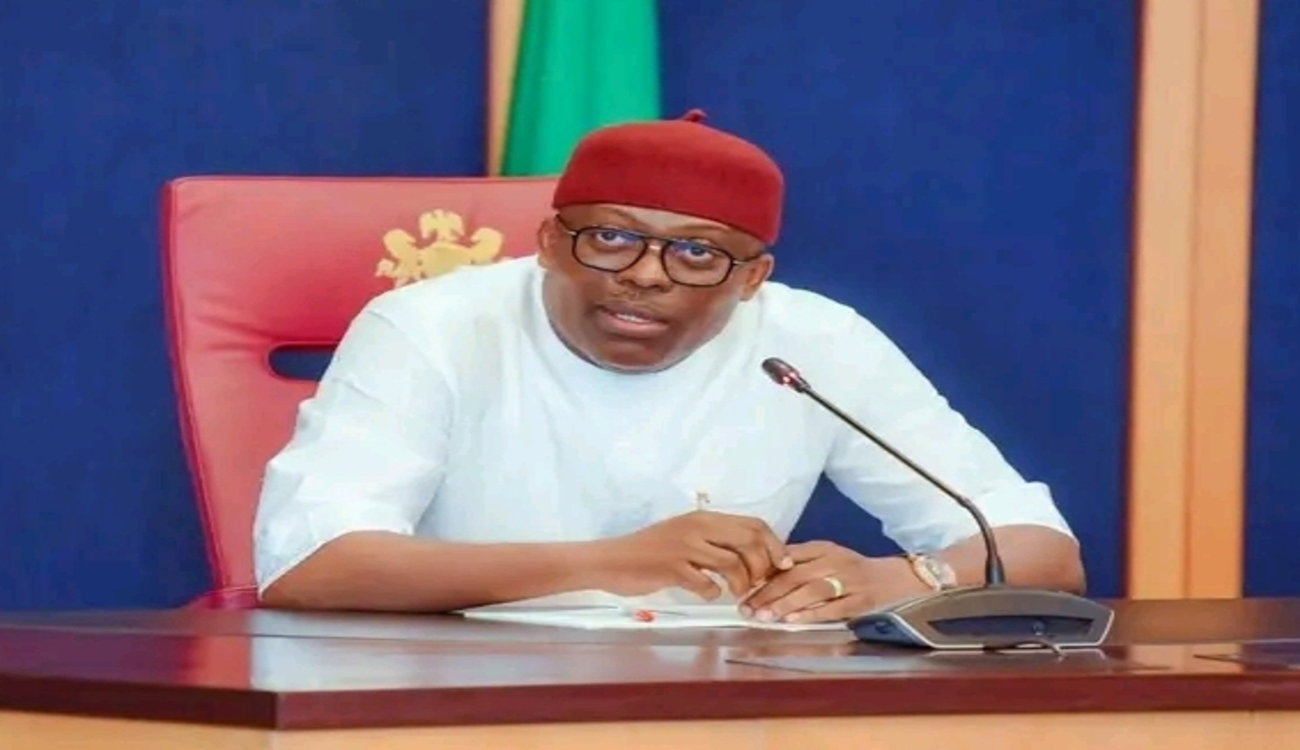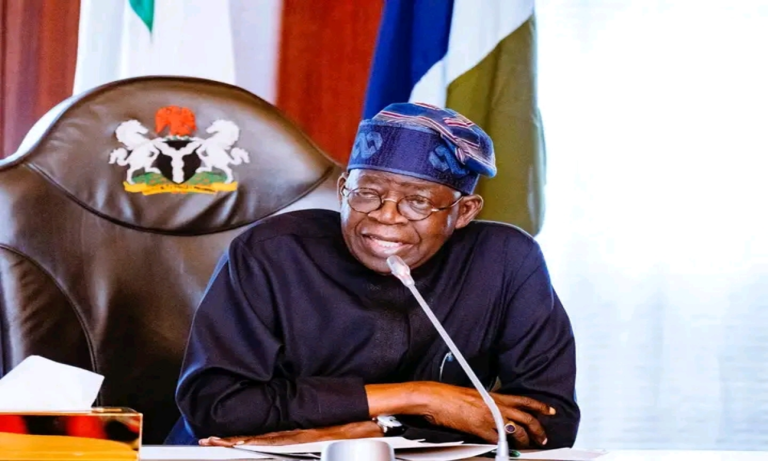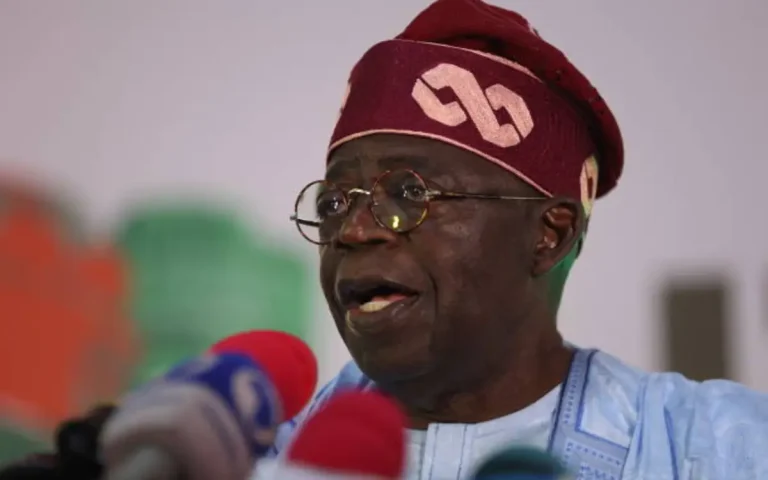
Governor Fubara announces cancellation of ₦134 Billion Rivers State Contract and directs ₦20 billion refund Port Harcourt Oct 16
The Rivers State Executive Council has revoked the ₦134 Billion Rivers State Contract awarded to the China Civil Engineering Construction Corporation (CCECC) for the renovation and furnishing of the State Secretariat Complex.
₦134 Billion Rivers State Contract Sparks Governance Review
The Permanent Secretary of the Ministry of Works, Dr Austin Ezekiel-Hart, said the contract was hurriedly approved without adequate technical evaluation or budgetary justification.
He explained that the council’s review uncovered irregularities in the bidding process, prompting a revalidation of four additional projects previously suspended.
These projects include the renovation of the Secretariat Complex, the construction of reinforced concrete shoreline protection, and reclamation works in various riverine communities across Opobo/Nkoro and Ogba/Egbema/Ndoni local government areas.
“The revalidation ensures compliance with state procurement laws and offers qualified firms an opportunity to compete transparently,” Ezekiel-Hart said.
Vanguard Newspaper reported that the government intends to readvertise the projects in national dailies to invite competent contractors.
Fubara’s Directive On Refund And Procurement Reforms
Governor Fubara instructed the Ministry of Finance to initiate immediate recovery of the ₦20 billion mobilisation fund and mandated the Works Ministry to coordinate re-tendering procedures within 30 days.
He reaffirmed his administration’s commitment to fiscal discipline, noting that public contracts must meet integrity benchmarks under his leadership.
Observers say the ₦134 Billion Rivers State Contract controversy underscores growing scrutiny of state-level expenditure across Nigeria’s oil-producing regions.
The council also agreed to strengthen oversight mechanisms to prevent future abuse of emergency procurement channels.
Public Accountability And Infrastructure Transparency
According to Ezekiel-Hart, transparency reforms form part of the administration’s broader agenda to rebuild public confidence in governance.
He added that each ministry has been instructed to publish quarterly progress reports on project implementation and budgetary expenditure.
The move aligns with the Nigerian government’s ongoing anti-corruption framework led by federal agencies monitoring sub-national finances.
Independent policy analysts cited by Vanguard described the decision as a “strategic correction” intended to reinforce compliance culture within the civil service.
In his comments, the Permanent Secretary of the Ministry of Education, Dr Azibaolanari Uzoma-Nwogu, announced plans for a statewide ICT and Computer-Based Testing initiative aligned with federal education reforms.
She said the digital education policy is essential to meet the national transition toward computer-based assessments for WAEC and NECO exams beginning 2026.
Expanding Youth Employment And Digital Training
The Commissioner for Employment Generation and Economic Empowerment, Dr Chisom Gbali, told reporters that the council directed his ministry to design an inclusive job-creation framework supporting technical education and enterprise development.
Gbali emphasized that the governor’s instruction reflects the administration’s social contract with youth to deliver employment equity and sustainable development.
“There will be a rising tide of employment and consistent economic empowerment,” he said.
Experts interviewed by The Guardian note that revisiting the ₦134 Billion Rivers State Contract demonstrates the political will to realign budgetary priorities amid national revenue pressures.
CCECC’s Role And Legal Review Of The ₦134 Billion Rivers State Contract
Legal consultants working with the Rivers State Ministry of Justice confirmed that CCECC could face audit queries if refund timelines are breached.
They noted that the contract’s revocation aligns with Section 26 of the Rivers State Public Procurement Law, which allows contract cancellation when compliance failures are detected.
CCECC representatives have not publicly responded to the decision, though company officials earlier said all documentation met the conditions approved by the former administration.
Economic observers highlighted that the Chinese engineering firm remains one of Nigeria’s largest infrastructure contractors, with ongoing rail, port, and highway projects nationwide.
The firm’s potential dispute with the Rivers State Government may be resolved through arbitration if reconciliation efforts fail, according to legal analysts.
Infrastructure Policy Context Across Nigeria
Across Nigeria, states are reviewing legacy contracts to address procurement loopholes that resulted in cost overruns and project abandonment.
In Lagos and Abuja, similar audits have triggered refund orders from contractors accused of violating tender rules.
Economists quoted by Vanguard argue that such reforms strengthen investor confidence and reduce corruption risks in public-works spending.
Fubara’s approach mirrors policy adjustments by other governors seeking to optimise infrastructure financing under tight fiscal conditions.
Fiscal Responsibility And Budgetary Oversight
The Rivers State government’s finance committee has recommended an internal audit of all major contracts awarded between 2022 and 2023 to determine cumulative liabilities.
The audit, expected to run for six weeks, will evaluate whether emergency procurements adhered to established due-process thresholds.
According to an internal memo reviewed by The Guardian, findings will inform the 2026 budget proposal and strengthen accountability standards.
Transparency International’s 2024 Sub-National Governance Index rated Rivers among the states with improving fiscal responsibility frameworks but warned of lingering implementation gaps.
The administration’s latest actions could further boost its ranking if audit recommendations are enforced promptly.
Reactions From patriotic Group And Lawmakers
Civil society groups in Port Harcourt welcomed the governor’s move, describing it as a long-overdue measure to safeguard public funds.
Lawmakers in the Rivers State House of Assembly also expressed support, urging the executive to pursue comprehensive recovery of misallocated resources.
One legislator said: “We must ensure that every contract follows the rule of law—this is how governance earns legitimacy.”
Analysts emphasised that the ₦134 Billion Rivers State Contract debate has become a litmus test for Fubara’s anti-corruption credentials.
They said transparency in procurement could shape Rivers State’s development trajectory over the next decade.
Broader Economic Implications For Rivers State
Rivers State remains one of Nigeria’s wealthiest sub-national economies, generating significant oil and gas revenue.
However, economists say weak contract governance has historically undermined value delivery and inflated project costs.
Addressing those weaknesses through legal enforcement and competitive bidding could strengthen infrastructure outcomes and attract private investment.
Fiscal analysts told Vanguard that refund recovery from the ₦134 Billion Rivers State Contract could help stabilise the state’s capital expenditure ratio.
They added that early completion of shoreline and reclamation projects would mitigate flooding threats in low-lying communities.
Implementation Timelines
The revalidated tender process is expected to commence within weeks, with pre-qualification assessments concluding before the end of November 2025.
Ministry officials said only companies with proven track records in civil engineering and environmental works would be eligible to bid.
Related: Epicstorian News Releases Exclusive Report on Tinubu–Governors Rift Over Nigeria’s Oil Revenue
Governor Fubara pledged to personally monitor compliance and release quarterly performance updates to the public.
The administration’s next budget presentation will reportedly include new transparency clauses governing contractor mobilization payments.





